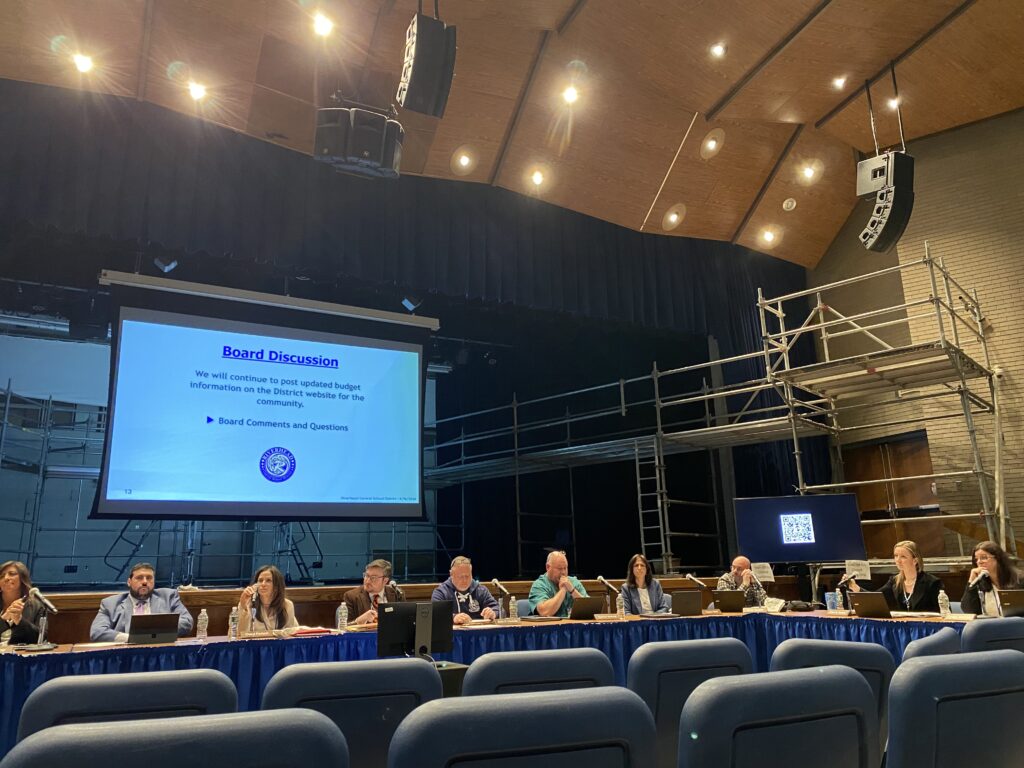Meet Vanessa Pino Lockel, the new executive director of Cornell Cooperative Extension

Cornell Cooperative Extension of Suffolk County recently welcomed Vanessa Pino Lockel as its new executive director.
Ms. Lockel, a Miller Place resident, began in the role Sept. 1, replacing former director Vito Minei.
She has held positions in county and state government entities for over two decades, most recently as the director of government and community affairs at the Long Island Rail Road.
Ms. Lockel has also worked directly for Gov. Andrew Cuomo’s office as a regional representative for the office of storm recovery during Superstorm Sandy, handling resiliency projects, as deputy press secretary for state Comptroller Thomas DiNapoli and as director of community outreach at the former New York State Banking Department.
She holds a Bachelor of Arts degree from Bates College and a Master of Public Administration degree from Columbia University’s School of International and Public Affairs and has also completed doctoral coursework at Stony Brook University in Social Welfare. Times Review Media Group spoke with Ms. Lockel last week about her new role and future ahead. Her answers have been edited for space and clarity.
Q: Given your background in community and government engagement, what got you excited about the Cornell Cooperative Extension?
A: My past work has been focused around advocacy for the region and in that time I learned so much about the East End and how much work we do for the region through farming and sustainability efforts. I couldn’t help but admire the work coming out of CCE. It’s Long Island’s best kept secret.
Q: What’s the most pressing issue facing CCE?
A: Based on what we’re hearing, we could be facing 50% cuts. We get approximately $3.7 million from the county a year, so to have that number potentially cut in half is very difficult for us to face.
Our horticultural center works with about 550 farmers to help with trials, so they don’t have to use their own land and essentially lose money if a crop fails. There’s a lot of support provided through research on marine restoration and environmental efforts and then of course our educational component. We are really engaged in the community on multiple levels, so it can really hurt the region to not have the resource that we provide.
Q: How has CCE responded to the COVID-19 pandemic?
A: Each department is tending to the issue of Covid differently. The farm, for example, provides a safe space to maybe just bring the family. We also provide an opportunity for schools to use our educational farm to maybe offset some difficulties with [remote learning]. The marine team has gone totally virtual on some of their programming.
Our family health and wellness program provides education — how do I cope with a young child during [the pandemic] at home, or how do I create a resilient high school child during this difficult time where many people are depressed because they aren’t having that social interaction they normally have? Our educators have pivoted their programs to cover these issues.
Q: How do you plan to address these difficulties brought on by the pandemic?
A: I think what’s needed now is someone who is open minded and willing to weather this storm and identify ways of becoming more visible.
Collaboration is key, so I’m looking to work with Stony Brook [University] and Brookhaven National Lab, so we’re not competing for things and instead working together to access limited funds out there.
I also plan to work closely with state agencies and the Long Island Farm Bureau to make sure we have our finger on the pulse on how that industry is handling the road ahead. I wish we were in better times but it’s an opportunity to seize the day.
Q: Can you tell me something you’d like the community to know about you and CCE in general?
A: I provide an open door for conversation and wish CCE to be a bipartisan space for education, research and resources around sustainability for the region. This is a one-stop shop for many people to provide them a fun place to go with the family, potential job opportunity or vocational training. We work with the community, including at-risk youth, people with disabilities, and offer programming in Spanish. We want to promote that programming. I’m open to thinking outside of the box during such a difficult time to ensure the safety of the organization and to provide this amazing resource.








